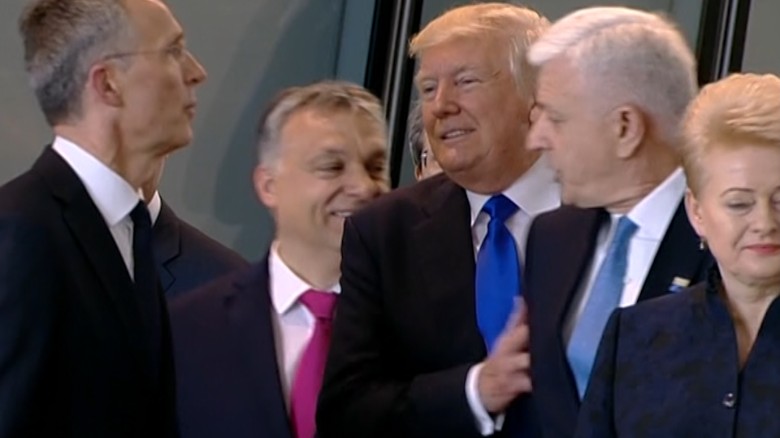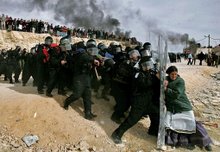Whenever someone asks me which philosophers I follow, I very quickly branch off into persons who do not seem to be philosophers within the narrow meaning of the term, lover of knowledge. But how could Mark Twain possibly be not that? If asked who are the great wits, I will come up with a list from all over the place. In what universe would we think Lewis Carroll was not as witty as could be?
I was reminded recently of
James Burke, the man who authored the unique television shows "
Connections" and "
The Day the Universe Changed." Burke recently was a guest on the podcast, "
Common Sense" hosted by
Dan Carlin. Burke and Carlin are two of my favorite analysts who have lived or whose legacy remains in my lifetime. I have learned inestimable amounts from each. This, then, is a piece about name dropping in which we review a short list of thinkers of whom you may have heard, or not. Your encounter with them could have been, as with me, not long enough.
It may be too easy to get buried in a whodunit or other type of thriller/romancer/fantasy/speculator, and fiction may be better for that than fact. It eases off on the need to connect to the real world, the need to block out with elbows and hips, the compulsion to get more toys. As William Wordsworth
wrote, "the world is too much with us; late and soon, getting and spending, we lay waste our powers: ... ." Part of getting and spending, is strategic rest whereby we seek refuge in things such as hobbies, calisthenics, running, drugs, and mountain climbing. Very seldom do we seek respite in thinking. After all, thinking beyond the level of a potboiler is very hard work, even impossible for some distracted people like those marching to and from work in Fritz Lang's Metropolis.
There is a scarcity of people such as
James Burke, Dan Carlin,
Mark Twain,
H. L. Mencken,
John McPhee,
Carl Sagan,
R. Buckminster Fuller,
Edward Tufte,
Douglas Hofstadter,
Kurt Vonnegut,
Robert A. Heinlein,
Ruth Rendell,
Dashiell Hammett,
Dorothy Parker,
Robert Higgs,
S. I. Hayakawa,
Annie Proulx,
Frédéric Bastiat,
Al Capp,
Cate Blanchett,
Walt Kelly,
David Byrne,
Murray Rothbard,
Lysander Spooner,
William of Ockham, and
Robert Penn Warren.
This is an introduction to a work that I offer as a resource for people who want to think. The above short list has my favorites, but they are as well a substantial veneer on the inexhaustible supply of contributors who have gone to profound depths beneath the veneer. You will find references to others in the words of these people. The thing these writers have is the gift of expression, in language and style that is accessible to those who want to approach linguistic calisthenics slowly.
I too will approach more slowly, writing in appreciation of each and rewarding them with wider exposure. You who take this advice will also, I believe, be rewarded.
Note: I plan to link each of the names above to the WWW, to sites where you can branch on your own.

I plan to cover all of these people in the days and fortnights ahead. They will be served up in no particular order other than where my fancy leads. So if I present Robert Penn Warren first, it could be that he is the greatest in my estimation at the time. But I would be remiss if I expected you to believe that is true. I would have to spend my effort on why Mark Twain or H. L. Mencken did not come first. And then I would leave out Robert Higgs.
Robert Penn Warren
I missed Robert Penn Warren's birthday a few days ago. I had not known it, the birthdate, previously, but I noted it this time, in this research, as it is only five days ahead of mine. I have known RPW, however, for many years -- casually for my early life, then in brilliant relief from 1962 onward. I have since then insisted that All the King's Men is the great American novel. It will always be so to me.
I was a just a 19-year-old college freshman in my first semester at the University of Kentucky. After getting my first schedule, I went to Kennedy Bookstore. On the shelves under the placard for Advanced Freshman English I found a text book and a paperback, a $0.75 version of All the King's Men. I had no idea I was buying a change in my life, a lifelong change, that would affect everything thereafter -- for three quarters of a buck.
We began reading this book the first week of class, and I was struck, as if by lightning, by two extended metaphors early in the text. they were,
The end of man is knowledge but there's one thing he can't know. He can't know whether knowledge will save him or kill him. He will be killed, all right, but he can't know whether he is killed because of the knowledge which he has got or because of the knowledge which he hasn't got and which if he had it would save him.
And
He learned that the world is like an enormous spider web and if you touch it however lightly, at any point, the vibration ripples to the remotest perimeter and the drowsy spider feels the tingle and is drowsy no more but springs out to fling the gossamer coils about you who have touched the web and then inject the black, numbing poison under your hide. It does not matter whether or not you meant to brush the web of things. Your happy foot or your gay wing may have brushed it ever so lightly, but what happens always happens and there is the spider, bearded black and with his great faceted eyes glittering like mirrors in the sun, or like God's eye, and the fangs dripping.
From these two passages, I grasped the laws of cause and effect. I also learned of the vastness of cause, and the complexity of consequence. This is when I saw that my consequences, arising from my actions, were nobody else's but mine. I was free to frolic in the web, but I could never ignore that consequences always arose from any act, and those consequences belonged to the actor. When you dance, you must pay the piper.
The two images from Warren are miracles of thrift and wisdom. In addition to the above lessons learned, I soon saw that the past, the present, and the future were too convoluted, too combinatoric, too complex to afford an easy plan for life. As Joseph Campbell said, "We must be willing to get rid of the life we've planned, so as to have the life that is waiting for us."
James Burke
Not only is the web too confounding for us in its entirety, it mystifies us close at hand. Anywhere that we are on the web, we can see the strand we occupy connecting to two intersections. Each intersection has strands leading to 4 or 6 other intersections, and each further intersection has connecting paths to 4 or 6 more. After just a few moves the choices are myriad. Some of us can keep more straight in our minds than others, but the possibilities soon overwhelm the best of us. James Burke, in his television series, Connections, took advantage of that multiplicity to observe the surprises among the connections. There could not help but to exist many, many surprises. No one really is managing a plan much past three removes -- the options in those three have numbered at least 128. At the next step, you have passed by 768 choices, then 4,608, then greater than 25k, leading to 150k, which is one step from nearly a million.
There had elapsed 16 years between my experience with RPW and my new find, Burke. I now had some quantitative idea of how fast and furious were the surprises. Here is the description, from Wikipedia, for the content of Episode 1:
"The Trigger Effect" details the world's present dependence on complex technological networks through a detailed narrative of New York City and the power blackout of 1965. Agricultural technology is traced to its origins in ancient Egypt and the invention of the plough. The segment ends in Kuwait where, because of oil, society leapt from traditional patterns to advanced technology in a period of only about 30 years.
As you can imagine, there are many more connections and intersections in the real world than in a spider web. There are more consequences, too. You own all of the consequences that arose from your vibrating the web. This is true whether you are alone or in a crowd.
Burke said, "As for the permanent values that are supposed to remain unchanged in spite of our changing knowledge — well they change too. Once it was good to burn women. Wrong to claim the Earth went around the sun. Logical to argue about angels on the head of a pin."
We live in a world of surprises, no matter how much we want for things to be settled, no matter how much we long for guarantees.
---------------------------------------
So, we see that no one human can possibly gauge all of the permutations. Both Warren and Burke have hinted at the vastness of possibilities. They haven't counted the possibilities. They imply that the possibilities are, in any practical sense, uncountable. Plans usually involve one or two layers of possibilities. Detail freaks may get to three layers but then the possibilities get out of hand. I used to suggest to my programming students that they should never go beyond two uses of nesting in a single structure (3 levels of computation) when writing their programs. While it may seen logical to see infinitely far in a binary world, which it is, confusion will soon throw you. I have said if one feels the need to nest more than twice, then one should lie down until the feeling goes away.
The next future essay, Influences II, will cover Robert Higgs, H. L. Mencken, and maybe, Mark Twain.


















